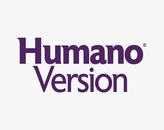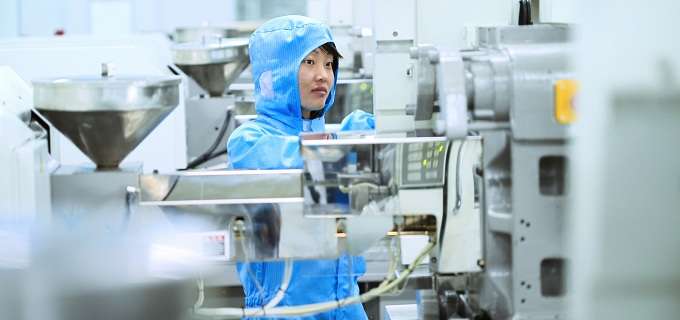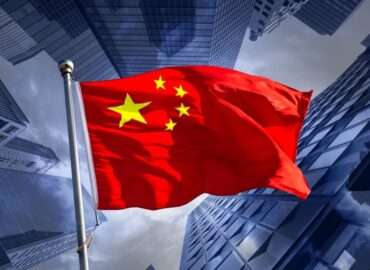Transforming ‘Innofacturing’ into the Driving Force of Hong Kong’s Economic Advancement

Image Courtesy – HKUST
‘Innofacturing’ or Innovation through Manufacturing might seem like a clever & novel term but its is a working model that has been used by multiple Asian Miracle Economies, notably a country like China. A key differentiating feature of the Eastern Developmental Model and the West is the process of production, where near-perfect products are taken to market as opposed to a company like Tesla that spends more time in R&D. This is most clearly visible when assessing the race to practical apply AI.
An increasing number of manufacturers are establishing production lines in Hong Kong, attracted by a surge in government support, the city’s robust R&D capabilities, and its strategic positioning as a global trade hub.
According to a Federation of Hong Kong Industries (FHKI) report, more than one-third of Hong Kong-invested manufacturers in advanced industrial phases relocated or expressed intentions to move to the city in 2020. Additionally, nearly 60% of Hong Kong-invested manufacturers, a twofold increase since 2015, want to enhance their technology R&D and product design.
While Hong Kong was previously recognized for manufacturing clothing, toys, and plastic goods, a new wave of Innovation and Technology (I&T) companies is gaining prominence in advanced fields such as manufacturing, microelectronics, nanotechnology, and biotechnology. Consequently, they are reshaping the “Made by Hong Kong” label to encompass products researched, developed, designed, and produced by locally-invested manufacturers.
>Hong Kong’s government support for ‘innofacturing’
In 2012, the Hong Kong government established the “Dedicated Fund on Branding, Upgrading, and Domestic Sales” (commonly known as the “BUD Fund”) to support Hong Kong-based companies in seizing opportunities in mainland China.
The fund’s scope was broadened in 2018 to encompass the ten countries within the Association of Southeast Asian Nations (ASEAN), including Singapore, Indonesia, Malaysia, Myanmar, Thailand, Cambodia, Laos, Vietnam, Brunei, and the Philippines.
Between 2021 and 2023, the fund underwent further expansion to include all countries with which Hong Kong has signed Investment Promotion and Protection Agreements (IPPAs) or Free Trade Agreements (FTAs). Presently, Hong Kong has 23 IPPAs covering 32 countries and regions, along with eight FTAs, making the BUD Fund applicable to 37 economies in addition to mainland China.
In 2023, the BUD Fund introduced “Easy BUD,” streamlining the application process for SMEs through an online mechanism. Under Easy BUD, the application procedures are completed in approximately 30 days, halving the time required for the regular procedures.
Similar to the BUD Fund, the SME Export Marketing Fund (“EMF”) was established to aid Hong Kong-based SMEs in expanding into overseas markets.
The EMF, a government funding initiative, supports companies in executing “export promotion activities” through various channels, such as participating in exhibitions in Hong Kong and abroad, organizing business missions, conducting diverse advertising and promotional activities, and establishing or upgrading web pages and mobile applications. The full list of eligible activities can be found here.
While these activities must primarily target overseas markets, between April 30, 2021, and June 30, 2026, the eligible activities have been expanded to include large-scale exhibitions targeting the local Hong Kong market as well. Additionally, some larger companies may be eligible to apply during this period.
The Chairman of the Productivity Council, Sunny Tan, highlighted the government’s heightened focus on promoting new industrialization in the current year. An integral policy development in this initiative is the New Industrialization Funding Scheme (NIFS), which was renamed from the Re-industrialization Funding Scheme effective October 25, 2023.
The NIFS is designed to provide subsidies to manufacturers establishing new smart production lines within Hong Kong. Eligibility extends to companies incorporated in Hong Kong under the Companies Ordinance (Cap. 622). To qualify for funding, the entire or a significant portion of the production line under application must meet the criteria of “smart manufacturing.”
Operational on a 1 (government) : 2 (company) matching basis, the NIFS offers funding support up to one-third of the total approved project cost or $15 million per project, whichever is lower. The funding scope encompasses expenses directly associated with the establishment of the new production line in Hong Kong. This strategic approach aligns with the government’s overarching objective of fostering advancements in industrialization and smart manufacturing practices.
>Lessons to be learned from Hong Kong’s Industrialisation
In the pursuit of economic growth and development, nations often look to successful models for valuable insights and lessons. Hong Kong, renowned for its remarkable industrial success, provides a noteworthy case study from which Sri Lanka can draw inspiration and guidance in shaping its own industrial policies.
A fundamental lesson that Sri Lanka can learn from Hong Kong is the significance of pro-business policies. Hong Kong’s enduring commitment to fostering a business-friendly environment through low taxes, efficient bureaucracy, and conducive regulatory frameworks has been a pivotal factor in attracting global businesses and investors, stimulating economic activity, and facilitating overall industrial growth.
Additionally, Hong Kong’s strategic allocation of government support and funding schemes underscores the effectiveness of financial incentives. Sri Lanka could explore similar initiatives to incentivize innovation, research and development, and the expansion of small and medium-sized enterprises, thereby catalyzing growth in key industries.
The adaptability and diversification demonstrated by Hong Kong offer another valuable lesson. Hong Kong’s transition from traditional manufacturing to advanced industries, including technology, microelectronics, nanotechnology, and biotechnology, underscores the importance of embracing innovation and aligning industries with global technological trends. Sri Lanka could benefit from promoting innovation hubs and investing in education and training to position its industries for future success.
Strategic international partnerships emerge as another crucial aspect for consideration. Hong Kong’s expansion of funding schemes to countries in the Association of Southeast Asian Nations (ASEAN) and those with investment agreements reflects a forward-thinking approach to international collaboration. Sri Lanka could explore similar strategies to strengthen economic ties, broaden its market reach, and attract foreign investments.
Furthermore, the introduction of “Easy BUD,” a streamlined online application mechanism for funding in Hong Kong, highlights the importance of efficiency in bureaucratic processes. Sri Lanka can enhance its industrial policies by adopting similar digital solutions to simplify administrative procedures, making it more attractive for businesses to engage with government initiatives.
In conclusion, the lessons derived from Hong Kong’s industrial policies provide Sri Lanka with a comprehensive roadmap for fostering industrial growth and economic prosperity. By incorporating pro-business strategies, providing targeted financial support, embracing diversification, fostering international partnerships, and implementing streamlined processes, Sri Lanka can navigate its journey toward becoming a resilient and forward-looking player in the global industrial landscape.





